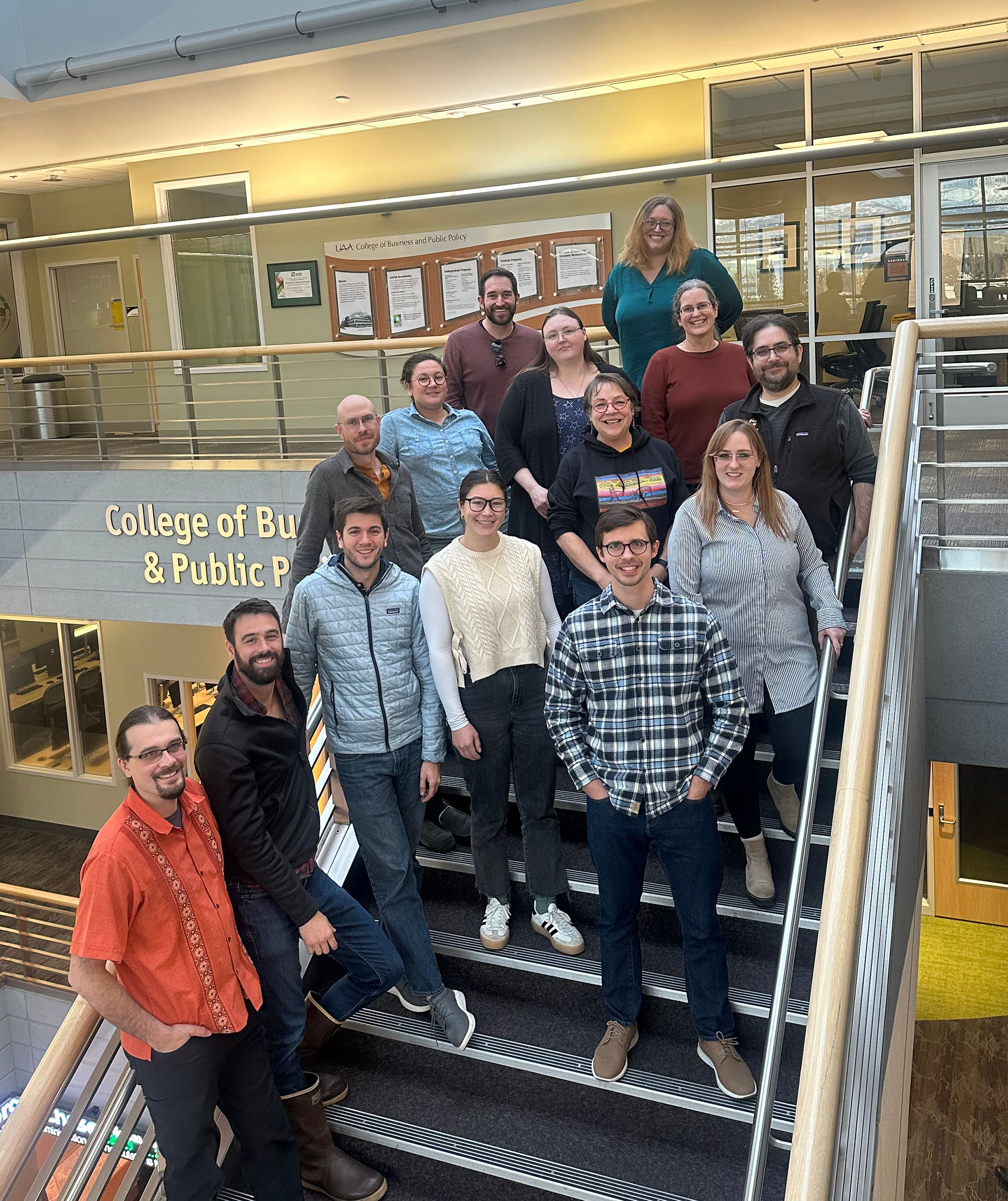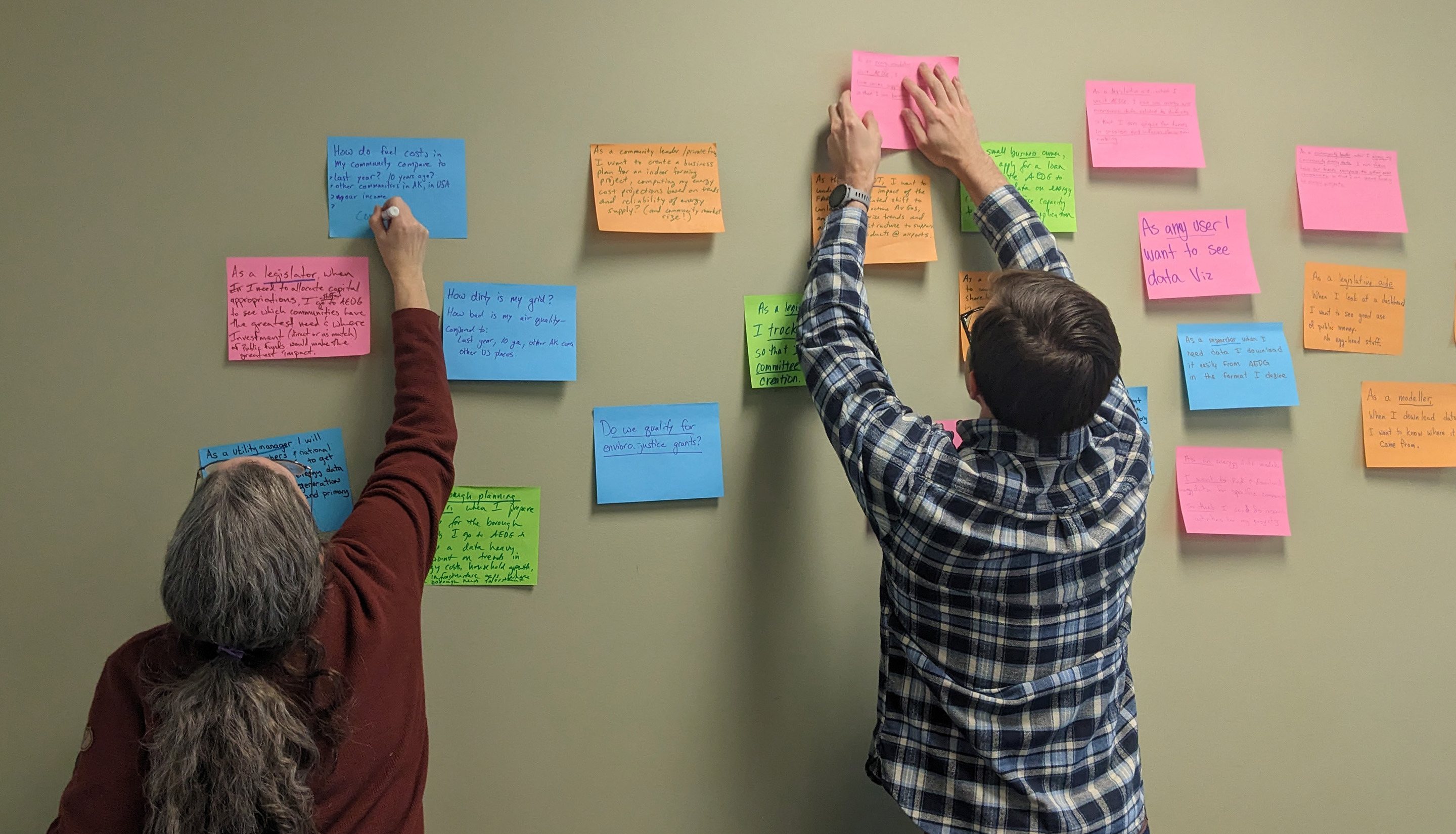ACEP-ISER project is underway to advance energy data access for Alaskans
December 1, 2024

University of Alaska partners in the AEDG revitalization project met in Anchorage to discuss data and cyberinfrastructure priorities.
The Alaska Energy Data Gateway project is moving forward with renewed focus and a strategic roadmap to make vital energy data more accessible to Alaska communities and energy decision-makers.
The AEDG, a project by ACEP and University of Alaska Anchorage’s Institute of Social and Economic Research in collaboration with agency partners and supported by the governor and the Alaska State Legislature, aims to create equitable access to Alaska energy data.
A recent planning session led to key decisions on dataset prioritization, system users and phases of development.
The ACEP-ISER team discussed the energy data needs of Alaska state and local agencies, legislators and local communities, and the role the AEDG will play in helping them make informed decisions and advocate effectively for their communities. While legislative aides may need up-to-date energy and economic data to support policymaking, local leaders may use comparative and climate data to secure funding and address community-specific energy challenges.
The initial focus of the project team is to prepare critical data related to energy costs, community statistics and population metrics. This high-impact data will be foundational to the AEDG platform, offering insights essential for community planning, policymaking and investment decisions.
The road map for AEDG development includes immediate, next-phase and later-phase initiatives. The road map describes the immediate need to finalize critical datasets, create standardized visualizations and ensure a smooth user experience across different data types. The ACEP-ISER partnership will also conduct user interviews to refine the most impactful data to meet user needs.
Both ACEP Director Jeremy Kasper and ISER Director Diane Hirshberg emphasized the importance of collaboration.

AEDG project members Elizabeth Dobbins and Jesse Kaczmarski, both with ACEP, brainstorm user needs for the revitalized system.
“With so many contributors across the state bringing their expertise in data, software design and community energy challenges, this project reflects the power of collaboration,” Kasper said. “Together, we are shaping a future where energy data is more accessible, impactful and built to serve the unique needs of Alaskans.”
The project team is following best practices for data accessibility in web application development and data management. This ensures a user-centered, resource efficient and agile approach. The team considers leading edge practices from the start to set the stage for future automated uses such as modeling and artificial intelligence. By delivering essential functionality in phases, the revamped AEDG will be well-positioned to provide valuable insights quickly while remaining responsive to evolving user needs.
“[The AEDG] will continue to be a valuable tool for empowering Alaska’s communities to make sustainable, informed decisions now and for generations to come,” Hirshberg said.


